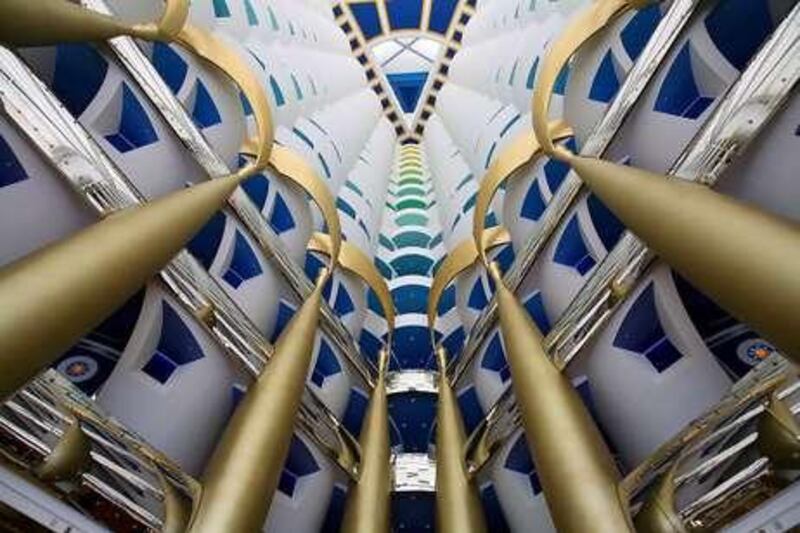Dubai Holding Commercial Operations Group (DHCOG), one of the emirate's largest business groups, has reported a loss of Dh23.56 billion (US$6.41bn) for last year, which has helped push the local stock market to a 14-month low. DHCOG, part of the Dubai Holding conglomerate, also wrote down the total value of its assets by Dh47bn, mainly because of impairments to its property business.
Financial markets had been braced for some write-offs, but the Dubai Financial Market (DFM) yesterday closed at its lowest since March last year and 3.1 per cent down on the day. DHCOG runs the Jumeirah hospitality business, the TECOM free zone operations, and Dubai Properties, the developer of Jumeirah Beach Residence and Business Bay. "The portfolio of companies has endured a challenging year," said Ahmad bin Byat, the chief executive of DHCOG. "However, the key initiatives undertaken place us in a strong position, enabling DHCOG to shift in line and adapt to current market conditions.
"There is no need to restructure outstanding debt as discussions are taking place to roll over our existing facilities on commercial terms." The financial statements, publication of which had been delayed for a month due to the complexity of the company's structure, showed total current borrowings of Dh15.2bn, of which Dh10bn relates to European loan note facilities and Dh5bn to bank borrowings. A $555 million liability due next month will probably be the first debt to be rolled over.
Total revenue declined by 28 per cent to Dh9.5bn, while impairment charges of Dh22.5bn added to a Dh1bn operating loss. Total assets fell to Dh124.5bn. Dubai Holding is owned by Sheikh Mohammed bin Rashid, Vice President of the UAE and Ruler of Dubai. Although the stock market reaction was negative, analysts were less surprised by the results. "We knew the impairment was coming and that it would be quite sizeable, reflecting the state of the Dubai property market and DHCOG's exposure to it," said Martin Kohlhase, an analyst with the ratings agency Moody's Investors Service in Dubai.
"The possibility of a financial restructuring was more worrying and here we just have a rollover of liabilities on commercial terms." Moody's has DHCOG debt under review for a possible downgrade. "We will make a decision sooner rather than later in the light of these figures," Mr Kohlhase said. One banker, who asked to remain anonymous, said: "We're pretty sanguine about it. It's a good business that's been through the crisis, but it's still cash-generative and solidly asset-backed."
Mr bin Byat said the decline in revenues and profits reflected "the decrease in land sales due to the significant reduction in demand within the real estate market and the re-phased handover of projects". But he said most remaining projects would start to be delivered this year and about 21,000 units would be delivered by 2012. The global hospitality business faced challenges last year, Mr bin Byat said, with the downturn reducing occupancy and revenue per available room.
"Jumeirah Group was less impacted due to its strong brand, high-end appeal and higher value proposition," he said. Occupancy rates fell only slightly to 73.4 per cent across the group, Mr bin Byat said. Jumeirah was in a "commendable financial position" at the end of last year. TECOM Investments' business parks "maintained strong growth and profitability as a result of its unique market position", he said. The group did not respond to pressure in commercial property by dropping its rental rates.
"We have carried out sound strategic measures in 2009, in the form of business realignment and financial initiatives, which place us in a strong position to capitalise on opportunities during the recovery phase," Mr bin Byat said. "After taking substantive measures to address cash preservation and optimisation of working capital, we are a stronger, leaner and more robust organisation that is ready to capitalise on future growth opportunities.
"Our ability to adapt quickly and effectively to changes in the global economic environment, and to refocus our efforts and strategies, gives me great confidence for the years ahead." fkane@thenational.ae






